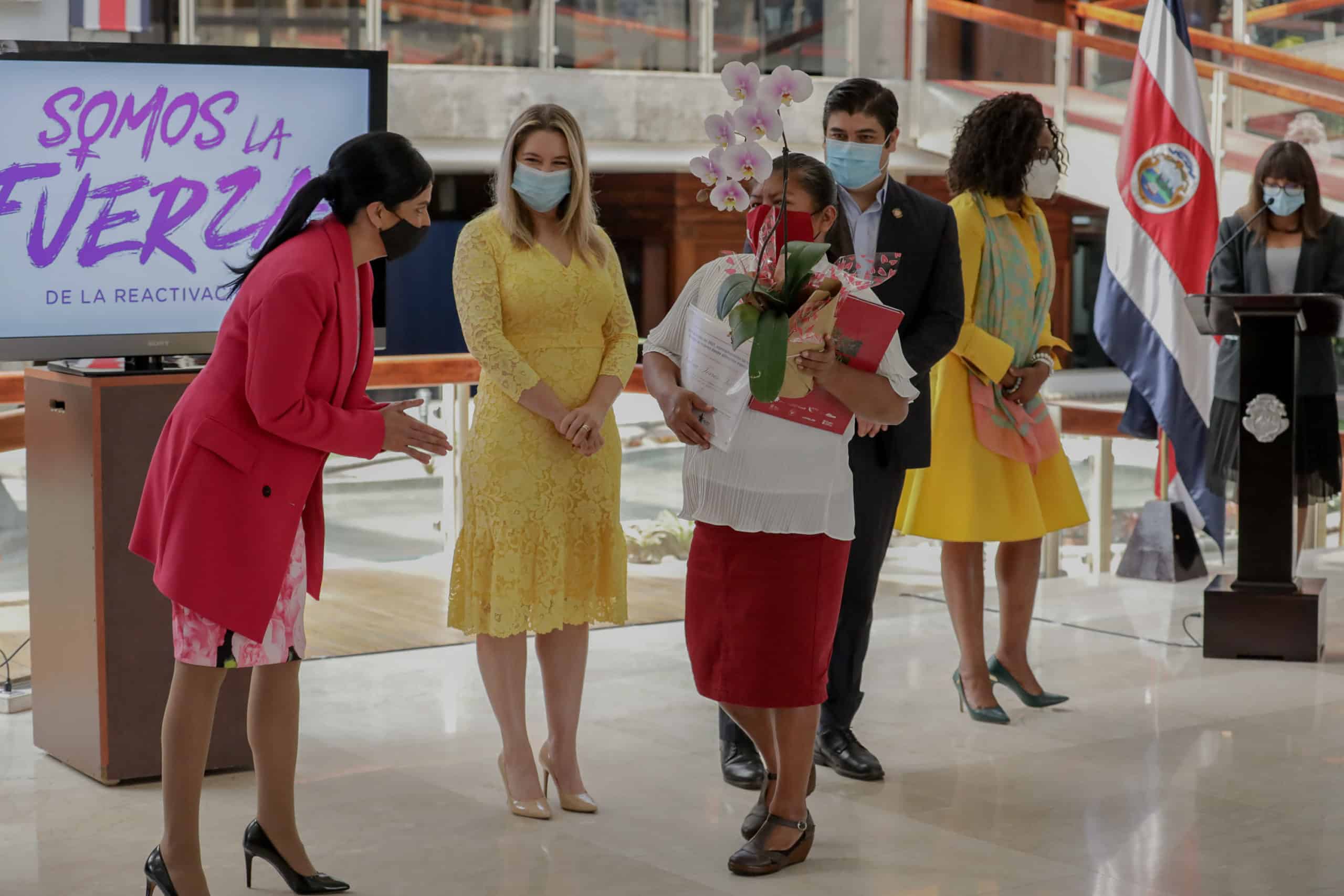In context of International Women’s Day, Costa Rican leaders on Monday signed a decree to create a commission to address the country’s gender unemployment gap.
The objective of this commission is “to seek inter-institutional and inter-sectoral articulation, dialogue and the establishment of public-private agreements, as well as the formulation and implementation of policies, strategic actions and government programs aimed at promoting the equal participation of women in productive processes, to generate inclusive economic growth, gender equity and the eradication of economic poverty,” according to the decree.
The document was signed by President Carlos Alvarado, as well as by the Ministers of the Status of Women, Marcela Guerrero; of Economy, Industry and Commerce, Victoria Hernández; of Public Education, Guiselle Cruz; and of Labor and Social Security, Silvia Lara.
“The COVID-19 pandemic is deepening existing inequities and is a setback in terms of equality and women’s rights, which took decades to recover,” said Vice President Epsy Campbell. “Without an adequate response, we run the risk of losing a generation or more of achievements.”
According to the National Institute of Statistics and Census (INEC), 24.6% of women are unemployed, compared to 15.2% for men. Likewise, women are more likely to be underemployed — working fewer than 40 hours a week and wishing to work more — at 21.6% of the workforce, compared to 17.5% for men.
Women also have a lower rate of labor force participation (50%) compared to men (72%).
Costa Rica’s high jobless figures are largely a product of the pandemic, which provoked a record unemployment rate of 24% in mid-2020. At that point, unemployment among women was even more elevated, at 30.4%.
These data are not unique to Costa Rica. According to the International Labor Organization (ILO), women across the region have been more impacted by the pandemic than men.
“In particular, women were much more likely than men to drop out of the labor market and become inactive,” the agency indicated.
Women are over-represented in some of the sectors that have been most affected by the coronavirus, such as hotel and restaurant services. As a result, the pandemic’s impact among women has been greater.
But even before the pandemic, the National Women’s Institute (INAMU) warned of an increasing wage gap in Costa Rica. In 2016, women earned 12% less than men, a gap that was even higher (18%) in the private sector.
“We will prioritize advocacy to eliminate gender gaps,” said Marcela Guerrero, president of INAMU. “This action must be a constant in institutional work to recover the employment accessible to women and that strengthens economic autonomy.”






